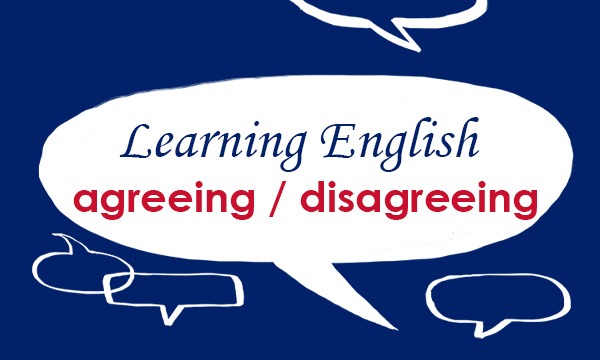
Agreeing
To agree to do something or give someone something, use Yes or OK. To make yes more polite or enthusiastic, add of course.
‘Will you come with me?’ ‘Yes.’
‘Could you help me with my bags?’ ‘Yes, of course.’
‘Can I have an ice cream, Dad?’ ‘Yes.’
‘Can you cook dinner tonight?’ ‘OK, if you like.’
‘Will you drive?’ ‘OK.’
‘Can I borrow your pen?’ ‘OK.’
If you think that what someone has said is right, say I agree … or You’re right.
I agree. I think she’s great.
Yes, I agree with you. We need to promote him.
You’re right. We waste too much food.
I think you’re right about the website.
If you feel strongly that what someone has said is right, say I totally agree …
I totally agree. I think it’s terrible.
Disagreeing
To say you will not do something or give someone something, use No. To make no more polite or less blunt, add sorry.
‘Could you give me a lift?’ ‘No, sorry, I haven’t got time.’
‘Will you pay for the ice creams?’ ‘No, it’s your turn.’
If you think that what someone has said is wrong, say I disagree … and if you feel strongly that what someone has said is wrong, say I totally disagree …
I’m afraid I disagree. I think it’s a really bad idea.
I totally disagree. I think it’s a complete waste of money.
If you do not agree with someone’s opinion, you can also use I don’t think so.
‘Pierre’s really nice, isn’t he?’ ‘I don’t think so. He never speaks to me.’
‘Travelling by train is really relaxing.’ ‘I don’t think so. I prefer to fly.’
Come back for more blogs on using English in everyday situations: https://blog.collinsdictionary.com/language-learners/learning-english/
All opinions expressed on this blog are those of the individual writers, and do not necessarily reflect the opinions or policies of Collins, or its parent company, HarperCollins.




collins_dictionary_official
The home of living language. #wotd #wordlovers #collinsdictionary
Read our word of the week definitions and blog posts: